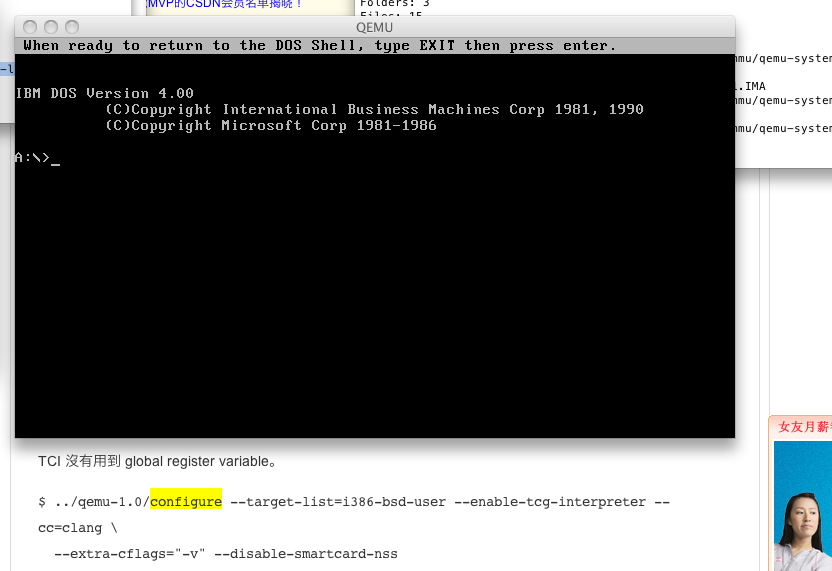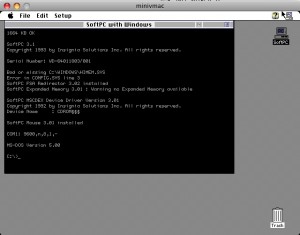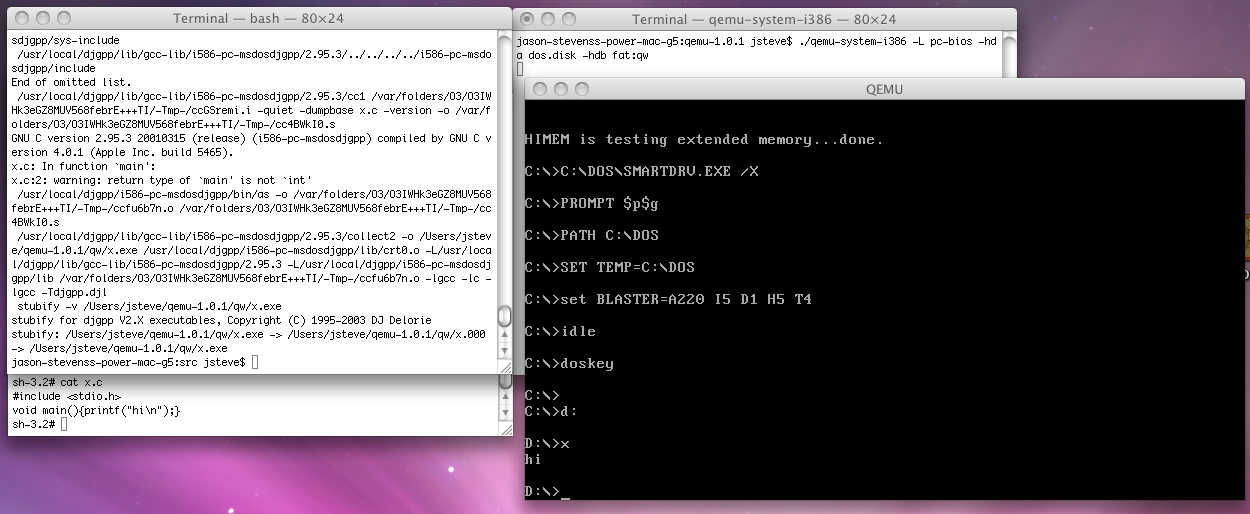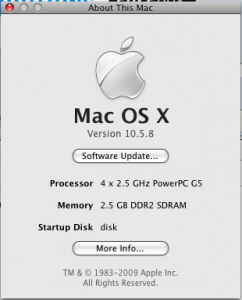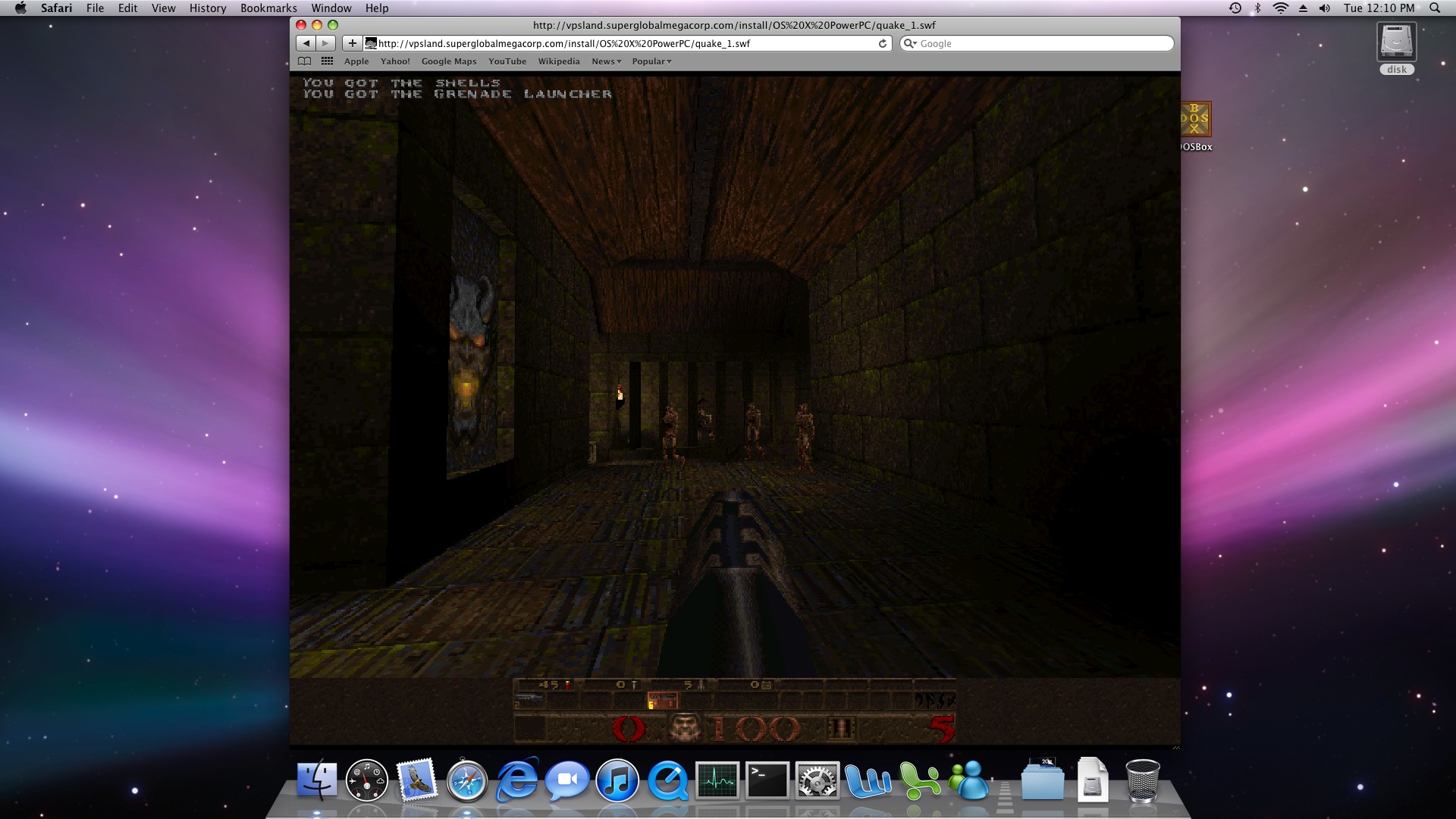So this is good news, as always you can check out the change log, or download the source and compile yourself…
Using my quick instructions on building on OS X, I got 1.2 to compile which is nice, and run DOOM..
As you can see from this output it isn’t relying on the TCG backend
$ ./configure –audio-card-list=ac97,es1370,sb16,adlib,hda,gus –disable-curl –target-list=i386-softmmu
Silently falling back into gthread backend under darwin
Install prefix /usr/local
BIOS directory /usr/local/share/qemu
binary directory /usr/local/bin
library directory /usr/local/lib
include directory /usr/local/include
config directory /usr/local/etc
Manual directory /usr/local/share/man
ELF interp prefix /usr/gnemul/qemu-%M
Source path /Users/neozeed/src/qemu-1.2.0
C compiler gcc
Host C compiler gcc
Objective-C compiler clang
CFLAGS -O2 -D_FORTIFY_SOURCE=2 -g
QEMU_CFLAGS -m64 -DOS_OBJECT_USE_OBJC=0 -arch x86_64 -D_GNU_SOURCE -D_FILE_OFFSET_BITS=64 -D_LARGEFILE_SOURCE -Wstrict-prototypes -Wredundant-decls -Wall -Wundef -Wwrite-strings -Wmissing-prototypes -fno-strict-aliasing -fstack-protector-all -Wendif-labels -Wmissing-include-dirs -Wempty-body -Wnested-externs -Wformat-security -Wformat-y2k -Winit-self -Wold-style-definition
LDFLAGS -m64 -framework CoreFoundation -framework IOKit -arch x86_64 -g
make make
install install
python python
smbd /usr/sbin/smbd
host CPU x86_64
host big endian no
target list i386-softmmu
tcg debug enabled no
gprof enabled no
sparse enabled no
strip binaries yes
profiler no
static build no
-Werror enabled no
Cocoa support yes
SDL support no
curses support yes
curl support no
mingw32 support no
Audio drivers coreaudio
Extra audio cards ac97 es1370 sb16 adlib hda gus
Block whitelist
Mixer emulation no
VirtFS support no
VNC support yes
VNC TLS support no
VNC SASL support yes
VNC JPEG support no
VNC PNG support no
xen support no
brlapi support no
bluez support no
Documentation yes
NPTL support no
GUEST_BASE yes
PIE no
vde support no
Linux AIO support no
ATTR/XATTR support no
Install blobs yes
KVM support no
TCG interpreter no
fdt support no
preadv support no
fdatasync no
madvise yes
posix_madvise yes
uuid support no
libcap-ng support no
vhost-net support no
Trace backend nop
Trace output file trace-<pid>
spice support no
rbd support no
xfsctl support no
nss used no
usb net redir no
OpenGL support no
libiscsi support no
build guest agent yes
seccomp support no
coroutine backend
So far it looks good on OS X, so here is my i386 binary! Â Although I’ve only tested it with MS-DOS 4.01 & Doom 1.1
And after much delay, here is my Win32 binary for the i386 system emulation. Â And just like the OS X version, I’ve only tested it with Doom. Â I’ve included my usual control-alt-delete shortcut & the ability to quick reset.



